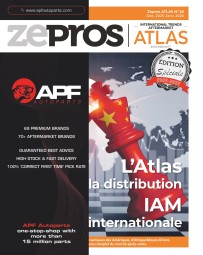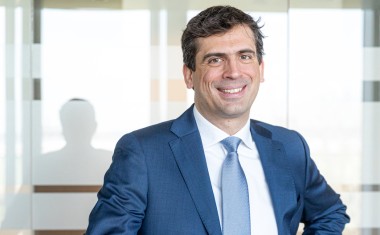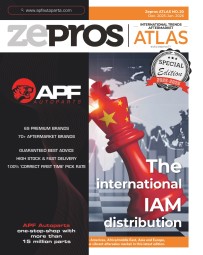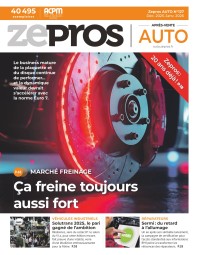
P. Colpron, ZF: “Show solidity to handle the technological coexistence of combustion and electric engines”

With its collaborative approach and its commitment to electric and connected vehicles, the German equipment manufacturer believes it is sufficiently ahead of the game to cope with the technological changes ahead, while retaining its position in the maintenance of older vehicles. Especially since the aftermarket market is going through a buoyant spell.
Philippe Colpron: Society today is constantly seeking absolute efficiency, which will come from more integrated connectivity between all the players. Having said that, for each project,we look at the contribution of these co-constructed solutions in terms of the specific features of each customer segment, each country and each type of vehicle. And we identify the partners who will deliver the greatest joint added value, while respecting each player's business model. We are currently working to extend this approach to the fleet sector, where demand for efficiency is high, but also to develop a new, more connected ecosystem for workshops, and in particular to fulfil their needs for multi-make diagnostic solutions. So we're looking for partnerships in technical training with our ProTech service, and we're adding other suppliers. In South America, we have developed a solution with a finance company to facilitate payment in garages. The aim is for each party to benefit from added value while retaining its business model. Another example of value integration, this time in-house, is the introduction of Remote Vehicle Health for HGVs and delivery vehicles, combining our experience in integrated telematics with our diagnostic tools. Here, we are targeting small fleets whose maintenance is less closely monitored, and for whom this integrated solution will help them control their fleet’s health better. With each solution we develop, we broaden the ecosystem to ensure that we are relevant in terms of product use.
P. C.: I do believe that the future will be electric, although it will take a little longer than expected and will not be uniform across the world. The question of profitability is complex, mainly because the industry does not have the backbone to support all the necessary investments without a ROI as fast as had been hoped. At ZF, we are fortunate to be in a strong position thanks to our solid product portfolio in transmission, braking, suspension and steering, all of which will continue to be essential for operations on an electric vehicle. For other suppliers, the situation will be more complicated, particularly those who depend on products undergoing technological transformation. It's true that the coexistence of different technologies is a tricky predicament, and this is likely to continue for at least the next five years. But we are currently in a buoyant after-sales cycle, so this is the right time to prepare to handle the coexistence of the two technologies. Because if we don't prepare, we'll be opening the door to others who will arrive without any detailed knowledge of the aftersales ecosystem and its needs. The fact remains that for solid incumbent equipment manufacturers, there are opportunities to work with these new players, for whom it will not be profitable to recreate solutions that we have been providing for decades.
P. C.: Indeed, on an increasing number of vehicles, whether electric or not, all parts will be controlled by software. Clearly, this change could pose a challenge for workshops, which will also have to become increasingly digital. This will mean a real change in their business model, as we can also expect a natural erosion in the monetisation of parts, but an increase in the monetisation of management, calibration and vehicle software updates.
P. C.: The shift is different depending on the of the world we’re talking about. In Western Europe, garages are already highly computerised. Switching from computers to iPads shouldn’t be a problem for them! Except that the ecosystem is connected to multiple solutions with old architectures that are difficult to interconnect. This is making it hard for us in our endeavours to integrate them and improve information sharing to make processes and customer relations more fluid, particularly at fleet level. In Brazil, the workshops are well ahead in the use of high-performance digital technologies, which have significantly improved their communications with suppliers and customers. For example, we have developed the ProAmigo programme, a technical network of mechanical workshops, with an online application for booking appointments, an online quotation tool and operation tracking. In China, which is already highly digitalised, we need to integrate extensive connectivity between the workshops and the end customer. Similarly, India has moved to a highly professional system thanks to advances in fintech. That's why it's so important to have teams in the different regions of the world who have a detailed knowledge of their uses, so that we can offer them a pertinent service.
P. C.: I think that market consolidation is actually going to accelerate. Because we're going to have to be able to economically cope with the transformation that's underway, while at the same time developing profitable solutions for the day-to-day needs of garages and distributors, which are also consistent with the future that's taking shape.










